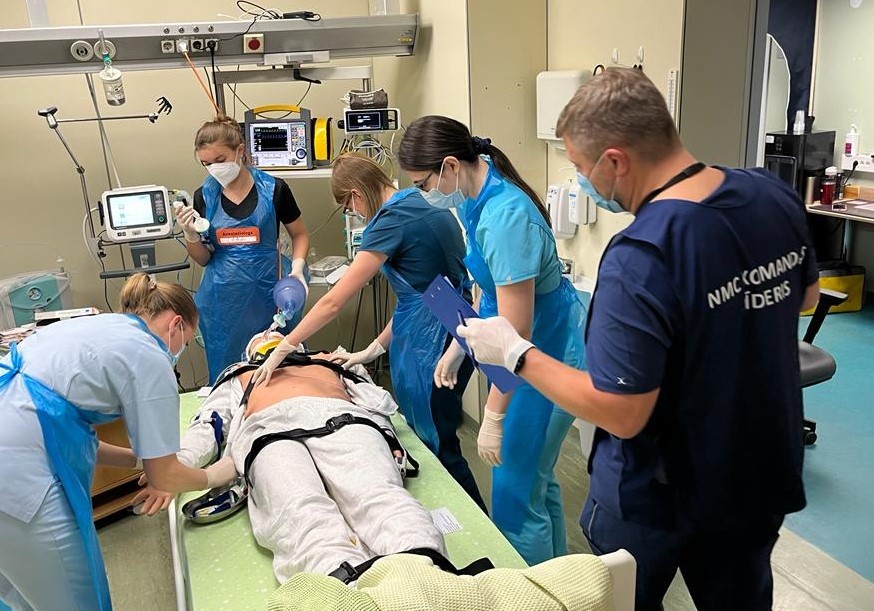RSU and Pauls Stradiņš Hospital Provide Simulation-Based Polytrauma Training
Tens of millions of people around the world suffer a variety of injuries every year that can affect their ability to work, their quality of life, or even prove fatal. Every day, Pauls Stradiņš Clinical University Hospital (PSKUS) treat polytrauma, gunshots, stab wounds, and severe head injuries. To treat these patients in a structured way, PSKUS has developed a polytrauma protocol that acts a sa kind of algorithm for medical staff. In order to continuously improve on it, PSKUS organises regular simulation-based training in-situ, or in the real work environment at the hospital's Emergency Medicine Centre, together with the Rīga Stradiņš University (RSU) Medical Education Technology Centre (MITC).
A total of eight such training sessions have been held, with the participation of 40 staff members from the PSKUS Emergency Medicine Centre – doctors, nurses, physician’s assistants, and assistant nurses. There are plans to conduct polytrauma training every two to three months from now on. During the training, participants acquire a theoretical understanding of the polytrauma protocol and the ABCDE approach, individually improve their skills in a simulated environment using mannequins and simulated patient actors, and, working in a team, role-play complex polytrauma scenarios.

Training in a real work environment
Participants develop skills such as pelvic immobilisation, how to safely transfer trauma patients, how to manage airways, and needle decompression, or pleural drainage. The simulated scenarios include both everyday trauma situations and road traffic accidents.
"A multidisciplinary team made up of staff from the Emergency Medical Centre took part in the training and included an anaesthetist, a surgeon, a radiologist, a physician’s assistant, a nurse, a nurse assistant. The team was coordinated by a team leader in accordance with the polytrauma protocol. In a simulated and safe environment, participants could learn to work together, make difficult decisions regarding a patient with severe polytrauma and then analyse their actions to prepare for a real situation," explained Dr. Jevgēnijs Kravčuks, a chief physician at PSKUS Emergency Medicine Centre and a certified ATLS and ETC course instructor.
"Thanks to this training, the team developed their actions in polytrauma cases; everyone now knows and understands their competences, and the work can be executed quickly and productively. Currently, a patient with polytrauma is examined within an hour, emergency care is provided, the patient is stabilised and then transferred to the operating theatre. I would like to thank everyone involved and I look forward to cooperating again in the future," says Dr. Valērijs Ratobiļskis, Head of PSKUS Emergency Medicine Centre.
This training programme has been developed on the base of many years of experience in organising emergency medicine and trauma summer schools at RSU MITC. Ieva Šlēziņa, Director of the MITC adds: "The RSU Medical Education Technology Centre used to organise a summer school in emergency medicine and trauma for resident doctors. Thanks to these activities, we have now been able to get to the next level, conducting simulations in-situ or in a real working environment in the hospital's admission department."
Related news
 Simulation education in the spotlight at RSU Erasmus+ Staff WeekFor RSU Employees, International Cooperation
Simulation education in the spotlight at RSU Erasmus+ Staff WeekFor RSU Employees, International Cooperation


